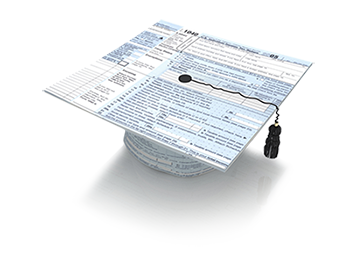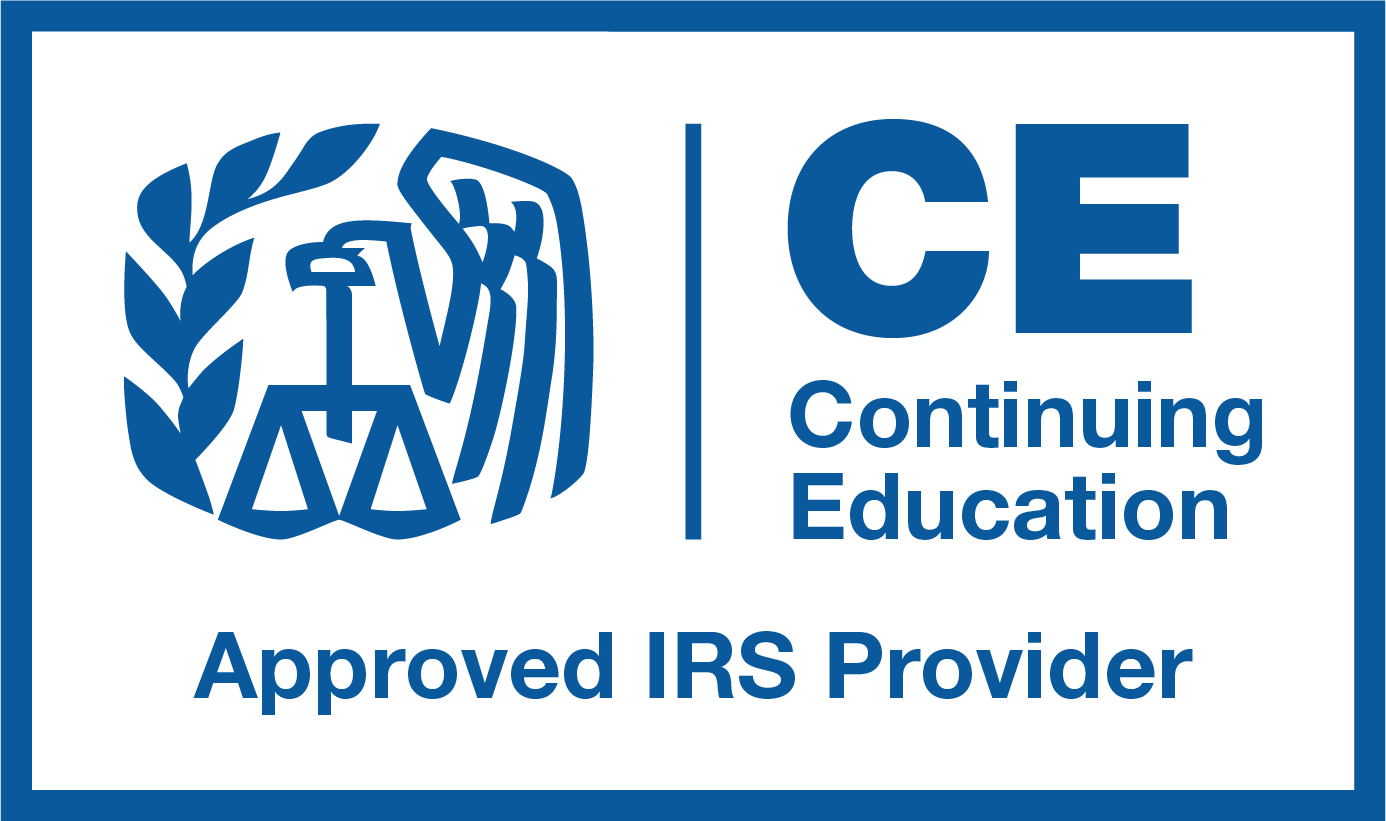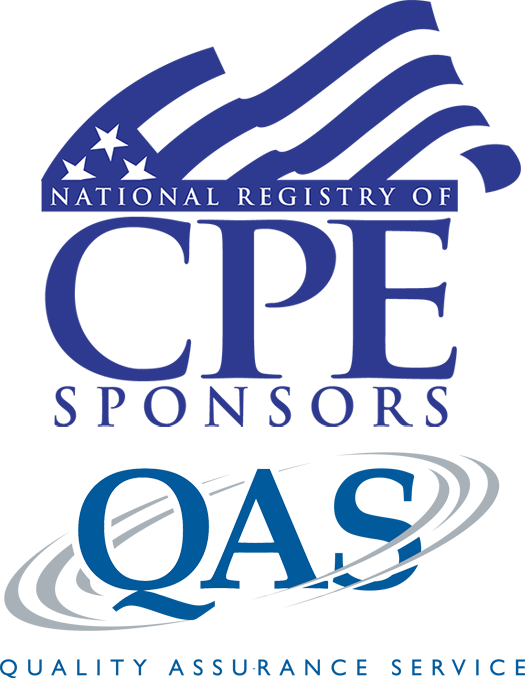Corporate Tax Planning
Author: Danny Santucci, JD
Electronic version only
This course examines and explains recent developments giving corporations a competitive edge over other entities are explored and detailed. Practitioners are alerted to often missed fringe benefits, retirement planning opportunities, corporate business deductions, income splitting possibilities, and little-known estate planning techniques. The program covers step-by-step tax procedures to form, operate, and ultimately dispose of a closely held corporation.
With this eight-hour course, you will:
- Get a 141-page PDF document

- Identify the transfer of money, property, or both by prospective shareholders and the basic requirements associated with §351
- Recognize the requirements of §1244 and the small business stock exclusion, determine the differences between start-up and organizational expenses and, identify the elements of corporate tax recognition including the dangers of corporate ownership and capital gains and losses stating dividends received treatment
- Specify the requirements for corporate charitable contributions, identify former §341 collapsible corporations, and determine how to avoid §541 status particularly as to personal service contracts
- Determine payroll taxes and the uses of Form 941, Form W-4, Form W-2, and Form W-3, specify the application of FICA and FUTA taxes and how to report them, and identify major employee labor laws
- Recognize common-law rules used to determine employee status for FICA and federal income tax withholding, specify the dangers of unreasonable compensation stating how to avoid them, and determine how a corporation can be a valuable income-splitting device
- Identify a buy-sell agreement distinguishing an entity purchase from a cross-purchase agreement and recognize business recapitalizations and their potential uses
- Identify basic fringe benefit planning by determining “income” under §61 and specifying the differences between former nonstatutory and current statutory fringe benefits
- Determine “no-additional-cost services” and identify what property or services are excludable from income as qualified employee discounts under §132(c), specify exceptions to working condition fringes and de minimis fringes, recognize a §74 “employee achievement award,” and cite the §79 group term life insurance rules
- Recognize the requirements and limits of §129 dependent care assistance, identify §125 “cafeteria plans” specifying how they function, specify the §119 meals and lodging exclusion, cite the mechanics of §105 self-insured medical reimbursement plans, and determine the requirements and limits of §127 programs
- Recognize various business disposition and reorganization possibilities by:
- Determining how organizational costs, start-up costs, and syndication costs are incurred and specifying what expenditures they include and how they are treated
- Identifying advantages of purchasing an existing business over starting a new business, citing ways to find a business that is for sale, and specifying the tax considerations of such an acquisition
- Specifying a reorganization under §368(a)(1) recognizing the types of transactions that qualify as non-taxable reorganizations
| Designation | CPE Hours |
|---|---|
| CPA | 8 Tax |
| EA | 8 Federal Tax |
| CRTP (CTEC) | 8 Federal Tax |
| Attorney | 6.75 General MCLE/Tax Specialization |
Course level: Overview
General understanding of federal income taxation is required.
Want to order by phone? Call us at: (800) 277-2257
 This self-study is designed to meet the requirements for the specified number of hours of continuing education. This self-study has been designed to meet the requirements of the IRS Return Preparer Office; including sections 10.6 and 10.9 of Department of Treasury’s Circular No. 230 (Provider No. CRA7E); the California State Board of Accountancy; the California Bar Association; and the California Tax Education Council. This does not constitute an endorsement by these groups. The state boards of accountancy have final authority on the acceptance of individual courses for CPE credit. For more information regarding administrative policies such as complaints or refunds, contact Spidell Publishing at (800) 277-2257. Spidell Publishing, LLC has been approved by the California Tax Education Council to offer continuing education courses that count as credit towards the annual “continuing education” requirement imposed by the State of California for CTEC Registered Tax Preparers. A listing of additional requirements to renew tax preparer registration may be obtained by contacting CTEC at P.O. Box 2890, Sacramento, CA 95812-2890, or phone at 877-850-2832, or on the internet at www.CTEC.org.
This self-study is designed to meet the requirements for the specified number of hours of continuing education. This self-study has been designed to meet the requirements of the IRS Return Preparer Office; including sections 10.6 and 10.9 of Department of Treasury’s Circular No. 230 (Provider No. CRA7E); the California State Board of Accountancy; the California Bar Association; and the California Tax Education Council. This does not constitute an endorsement by these groups. The state boards of accountancy have final authority on the acceptance of individual courses for CPE credit. For more information regarding administrative policies such as complaints or refunds, contact Spidell Publishing at (800) 277-2257. Spidell Publishing, LLC has been approved by the California Tax Education Council to offer continuing education courses that count as credit towards the annual “continuing education” requirement imposed by the State of California for CTEC Registered Tax Preparers. A listing of additional requirements to renew tax preparer registration may be obtained by contacting CTEC at P.O. Box 2890, Sacramento, CA 95812-2890, or phone at 877-850-2832, or on the internet at www.CTEC.org.
 Spidell Publishing, LLC is registered with the National Association of State Boards of Accountancy (NASBA) as a sponsor of continuing professional education on the National Registry of CPE Sponsors. State Boards of Accountancy have the final authority on the acceptance of individual course for CPE credit. Complaints regarding registered sponsors may be submitted to the National Registry of CPE Sponsors through its website: www.nasbaregistry.org. This self-study is designed to meet the requirements for 8 hours of continuing education for the California Board of Accountancy. Overview Level. Field of Study: Taxes. Delivery Method: Self-Study. For more information regarding administrative policies, such as complaints or refunds, contact Spidell Publishing at (800) 277-2257. General understanding of federal income taxation is required.
Spidell Publishing, LLC is registered with the National Association of State Boards of Accountancy (NASBA) as a sponsor of continuing professional education on the National Registry of CPE Sponsors. State Boards of Accountancy have the final authority on the acceptance of individual course for CPE credit. Complaints regarding registered sponsors may be submitted to the National Registry of CPE Sponsors through its website: www.nasbaregistry.org. This self-study is designed to meet the requirements for 8 hours of continuing education for the California Board of Accountancy. Overview Level. Field of Study: Taxes. Delivery Method: Self-Study. For more information regarding administrative policies, such as complaints or refunds, contact Spidell Publishing at (800) 277-2257. General understanding of federal income taxation is required.

